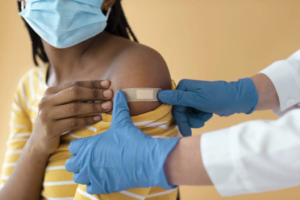COVID-19 vaccine deemed safe for people living with HIV
People living with HIV should not be afraid of getting the COVID-19 vaccine and should rather discuss any concerns they may have with a medical practitioner, instead of relying on fake news.
The COVID-19 vaccine does not interfere with antiretroviral medication or cause adverse side effects people living with HIV, provided a person’s immune system is intact, meaning that they are not suffering from any other ailments or infections.
This is according to Dr Lerato Masemola, a general practitioner based in Johannesburg.
“Taking the vaccine while experiencing any symptoms of flu or illness may result in a more severe illness due to an already activated immune response to the current undiagnosed infection,” she said.
However, she added that it is important to avoid becoming overly anxious about the vaccine, especially based on fake news that is being proliferated by some people.
“Being concerned about vaccines is understandable, but panic states can mimic chest pains and shortness of breath, which can also be side effects post-vaccination.”
Masemola advised people who were unsure about getting vaccinated due to their concerns about their immune systems to seek further medical advice from their healthcare providers.
Same benefits for people living with HIV
According to a report by the Joint United Nations Programme on HIV/AIDS (UNAIDS), the COVID-19 vaccine holds the same benefits for people who are living with HIV, as they do for all individuals and communities – the prevention of severe illness and potentially reduced transmission of the virus.
“Advocacy is needed so that no one is left behind and so that the national vaccination programs do not exclude people from key populations who may have limited access to health services. Based on recent data, people living with HIV, regardless of their CD4 count, appear to be at an increased risk of severe outcomes and death due to COVID-19 compared to other people.”
The UNAIDS report shows how COVID-19 lockdowns and other restrictions have disrupted HIV testing and in many countries this has led to steep drops in HIV diagnoses, referrals to care services and HIV treatment initiations. – Health-e News

